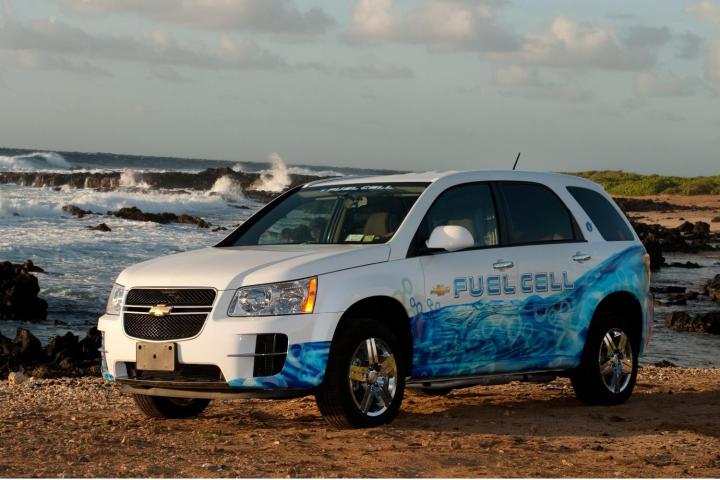
It’s unclear whether hydrogen fuel-cell vehicles have a place in America’s driveways, but General Motors has shown that they can at least survive its roads.
GM’s hydrogen fuel-cell test fleet has logged over 3 million miles of real-world driving, the company says.
The converted Chevrolet Equinox crossovers are part of GM’s Project Driveway, a program launched in 2007 that puts fuel-cell cars in the hands of average drivers, and gives the company important usage data.
More than 5,000 drivers have gotten behind the wheel of a fuel-cell Equinox, and some of the test vehicles have accumulated over 120,000. GM estimates that has saved 157,894 gallons of gasoline during its seven-year odyssey.
GM hasn’t announced plans for a production hydrogen car, but it recently started two partnerships to further the technology.
Last year, the company announced a cooperative effort with Honda – which plans to launch its own fuel-cell car next year – to develop “next-generation fuel cell and hydrogen storage systems” with an eye toward commercialization by 2020.
GM is also working with the U.S. Army’s Tank Automotive Research, Development & Engineering Center (TARDEC) on fuel-cell research.
While the General is strategizing, other car companies are making their first moves.
Honda’s fuel-cell car will be joined next year by a Toyota rival, based on the updated FCV concept that made the auto-show rounds this past season.
In addition, the Hyundai Tucson Fuel Cell will launch in California later this year. The converted crossover will only available for lease in select markets within the Golden State, to make the most of what little hydrogen refueling infrastructure exists.


